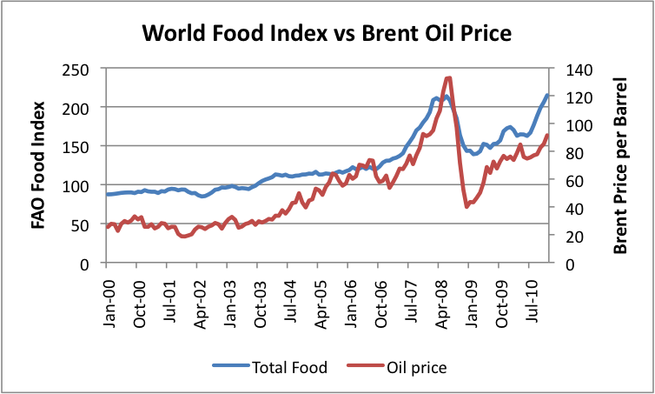The cost of imported food, particularly wheat, has risen, partly because of the relatively smaller harvest, and partly because the cost of production and transport is rising because of rising oil prices. Figure 1 shows the close relationship food prices and oil prices. The Food Price Index used in this graph is the FAO’s Food Price Index related to food for export; Brent oil prices are spot prices from the EIA.

..............................................................
Figure 1. World food price trend is similar to Brent oil price trend.
With oil prices higher now (because world production is close to flat, and as countries come out of recession, they want more), food prices of all types are higher as well. Oil is used directly in the production of grain and indirectly in storage and transit, so its cost becomes important.
Figure and text from: The Oil Drum
http://www.theoildrum.com/node/7425
Figure 1. World food price trend is similar to Brent oil price trend.
With oil prices higher now (because world production is close to flat, and as countries come out of recession, they want more), food prices of all types are higher as well. Oil is used directly in the production of grain and indirectly in storage and transit, so its cost becomes important.
Figure and text from: The Oil Drum
http://www.theoildrum.com/node/7425
 RSS Feed
RSS Feed